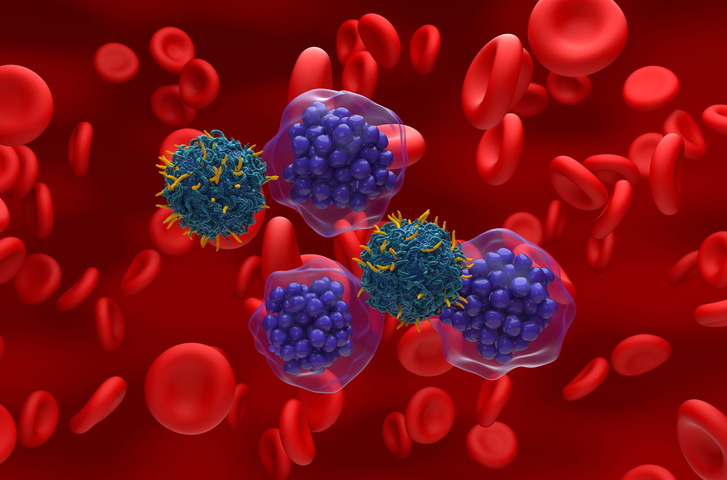
Lisocabtagene maraleucel (liso-cel) demonstrated a high, durable overall response rate (ORR) and complete response (CR) rate and was well tolerated in relapsed or refractory mantle cell lymphoma (MCL), according to results from the TRANSCEND NHL 001 study.
The authors, led by Michael Wang, MD, of the University of Texas MD Anderson Cancer Center and colleagues, wrote that the TRANSCEND results represent a potential new treatment option for patients with high-risk, aggressive, relapsed, or refractory MCL.
The MCL cohort of the phase I, dose-finding trial enrolled eligible patients with positron emission tomography (PET)-positive relapsed or refractory MCL after two or more lines of prior therapy, including a Bruton’s tyrosine kinase inhibitor, an alkylating agent, and a CD20-targeted agent.
Patients received liso-cel at a target dose level (DL) of 50 (DL1) or 100×106 chimeric antigen receptor (CAR)-positive T cells (DL2) after lymphodepleting chemotherapy. Bridging therapy was allowed. Primary endpoints were treatment-emergent adverse events (AEs) and ORR by International Working Group Response Criteria (IRC; Lugano 2014 criteria); secondary endpoints included CR rate, duration of response (DOR), progression-free survival (PFS), and overall survival (OS).
Of 104 leukapheresed patients, 88 received liso-cel (DL1, n=6; DL2, n=82). Median on-study follow-up was 16.1 months (range, 0.4–60.5 months).
In the efficacy set of patients, consisting of those who had PET-positive disease per IRC at baseline (DL1 plus DL2), the ORR was 83.1% (95% CI, 73.3–90.5) with a CR rate of 72.3% (95% CI, 61.4–81.6). Responses were durable, with a median DOR of 15.7 months and a median PFS of 15.3 months.
In terms of safety, among the 88 patients who received liso-cel, 86% had treatment-emergent AEs of grade 3 or higher, primarily cytopenias. Four grade 5 treatment-emergent AEs occurred (three related to liso-cel and/or lymphodepleting chemotherapy). The rate of any grade cytokine release syndrome (CRS) was 61% (grade 3–4, 1%; no grade 5) and neurological events (NE) was 31% (grade 3–4, 9%; no grade 5). Infections of grade 3 or higher occured in 15%, and prolonged cytopenia occured in 40%.
“Liso-cel demonstrated high ORR and CR rate that were durable and was well tolerated with low rates of grade ≥3 CRS, NE, and infections, thus representing a potential new treatment option for patients with high-risk, aggressive [relapsed or refractory] MCL,” the authors wrote.
Reference
Wang M, Siddiqi T, Gordon LI, et al. Lisocabtagene maraleucel (liso-cel) in R/R MCL: primary analysis results from the MCL cohort of the single-arm, multicenter, seamless design TRANSCEND NHL 001 study. Abstract #LBA. Presented at the International Conference on Malignant Lymphoma; June 13-17; Lugano, Switzerland.






 © 2025 Mashup Media, LLC, a Formedics Property. All Rights Reserved.
© 2025 Mashup Media, LLC, a Formedics Property. All Rights Reserved.